Howl's Moving Castle (2005*)
Dir. Hayao Miyakazi
Writ. Hayao Miyakazi, Diana Wynne Jones (novel), Cindy Davis Hewitt, Donald H. Hewitt
w/ Chieko Baisho, Takuya Kimura, Akihiro Miwa, Tatsuya Gashuin, Ryunosuke Kamiki
Gesundheit.
Originally, Digimon movie and TV series director Mamoru Hosoda was slated to direct this fairy tale of true love in a world of wizards, witches, and a very confusing war. The film may have been saved in innumerable ways when Spirited Away helmsman Hayao Miyakazi stepped up to the challenge. His landscapes are unlike any others seen in the world of animation, his sense of the medium intuitive. These scenes hold together at times as precariously as the rusty, old bits of the wizard's mysterious and legendary castle.
The version the Oaks Theatre [1] has graciously extended for another week contains the original Japanese dialogue, but the names are the American translations; so, Hauru becomes Howl, and Sofí becomes Sophie, etc. Thus we are spared certain possibly insulting distractions resulting from, for example, Billy Crystal's voice over on the centrifugal character, Calcifer, a fire demon whose strength keeps the castle hidden from the world of mere humans. With the characterizations thus preserved and still quite funny in an honest and believable way, Castle's plot is simple enough that ever were Disney to suddenly get grabby with the material, they wouldn't be able to malign the film too, too badly. [2]
Sisters Sophie and Lettie are worlds apart: Lettie oozes charm and beauty while Sophie introverts, putting much of herself into her work as a seamstress at her mother's hattery. A chance meeting downtown with a mysterious and beautiful man, however, makes Sophie a target for the spirits of darkness who are hot on his trail. The Witch of the Waste, a woman with whom the man had had a brief dalliance once, then puts a spell on the unsuspecting Sophie in a fit of jealousy. She becomes an old woman before her time, and isn't even afforded the ability to talk about it as her mouth glues shut when she starts to open up. Unable to confront her family with her dilemma, she leaves and wanders the wastes as she tries to adjust to the restrictions that sudden age has put upon her.
As is often the case with such stories, she meets another under a similar circumstance, a scarecrow who has been likewise enchanted and can not speak either. He befriends her immediately and delivers her out of the wastes and to Howl's castle, where Sophie sets up shop as housekeeper. And boy, does the place need her. Practically overnight, she transforms the moveable optical illusion into really homey accomodations, for it turns out that Howl is the mysterious man and she is in love with him, but unable to do anything about it. While he is not precisely unkind to her, he certainly shows no sign of returning her feelings, and she feels ugly. Being something of a prodigy, even for a wizard, he says nothing, but of course can see her true self despite the strength of the witch's curse.
The central conflict of the story manifests itself two-fold. On one hand, a war rages in the world of men and all wizards and witches have not only been asked to fight in it, they are being forced to do so by the King's magician. On the other, Howl has troubles enough of his own. His heart has been stolen by the fire demon and he and Calcifer depend upon each other for survival. When the fire dies, so does Howl. In this light, Sophie acts not only as lovelorn housekeeper but also as the guardian of the fire.
A few minor flaws announce themselves with gusto at certain points. We only see Lettie once, for example, perhaps just to contrast her starry blonde-haired and blue-eyed looks with Sohpie's decidedly plainer Jane features. For those of us who like to mix things up, it's a treat to watch a film with pronounceable names that we can relate to, but still get the colloquial quality of the original dialect. There's something quite satisfying, too, about watching wide-eyed Western-looking cartoon characters speak brilliant Japanese. I liked this juxtaposition a lot, enough to recommend that you watch this version first.[3] I wouldn't want to say much more about it. It's utterly delightful and certainly worthy of its Oscar nomination.
And I am suddenly reminded that I did not get to finish Spirited Away as planned.
*According to IMDB, this came out in 2004, but the Oscars list it as 2005. That may be the Americanized version. I can't really be sure, but it makes sense that the Academy would nominate that version, if for no other reason than because Crystal isn't hosting this year and they do so love to keep him around.
[1] The Oaks is playing it through Thursday, each day at 5:30 and also at 9:15 every day except Monday.
[2] There's considerably more to all of this than I've whisperingly hinted at, but Disney never can get a damn thing right. I do feel better, but I felt a bit better earlier.
[3] That's not to say that Christian Bale, Blythe Danner, Jena Malone, et. al., can't be good. Of course not. But I wouldn't want to watch an Americanized Triplets either, and I feel that they only did so to this because there's a much wider cultural gap between Japan and America than between America and France, which is something that won't get solved by the diluted version or the motives behind it.
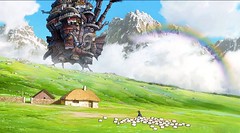
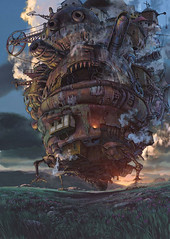


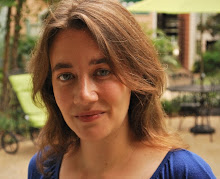
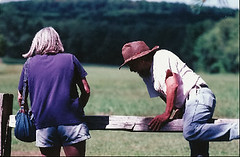
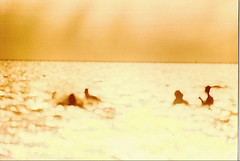
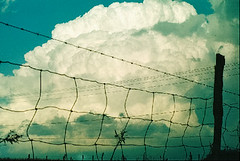
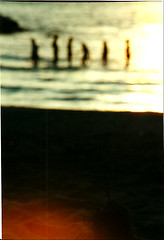
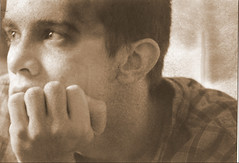
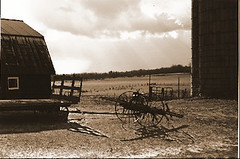
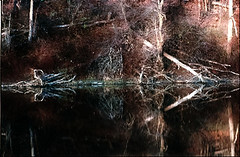






0 Comments:
Post a Comment
<< Home